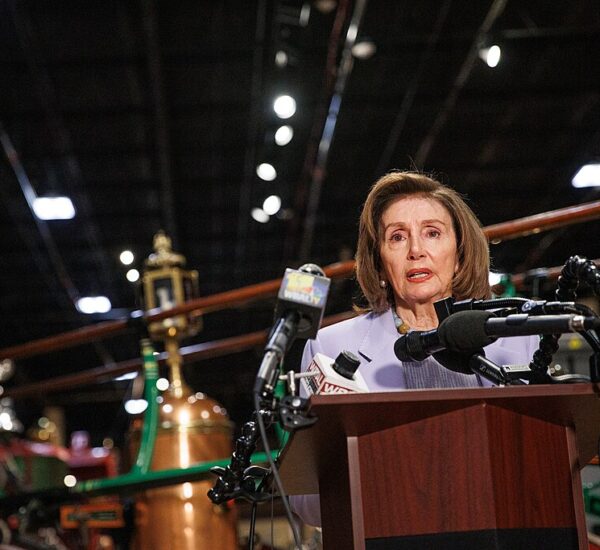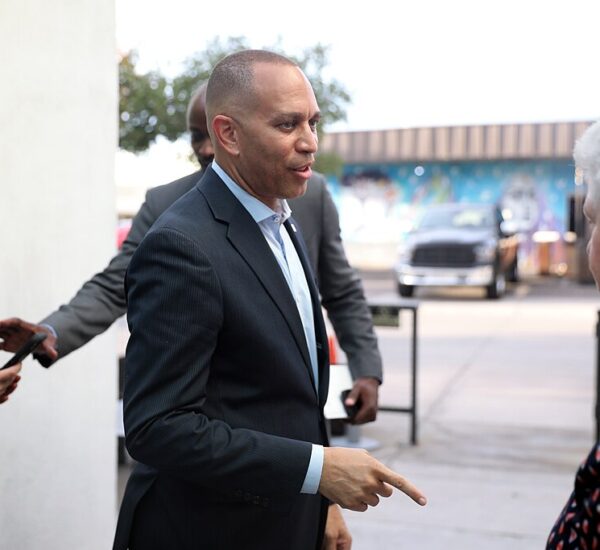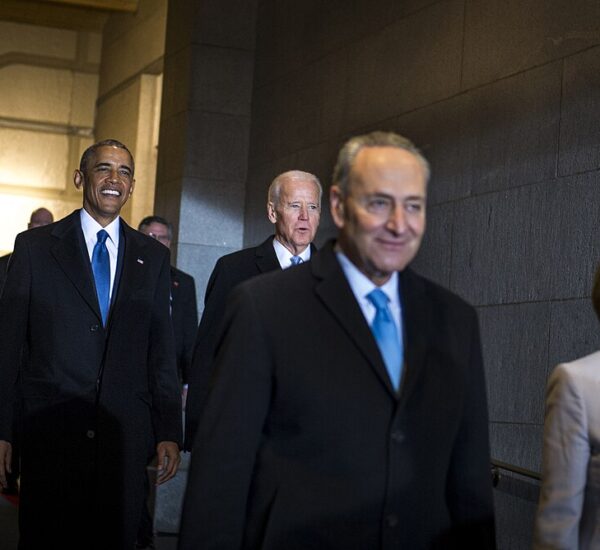GOP Dealing With Unique New Idea
As President Donald J. Trump moves into his second term, the Republican Party is defining a new conservative economic vision—one rooted in America-first values, fiscal discipline, and working-class prosperity.
The central question: What does the GOP stand for in 2025? Lower taxes and limited government? Or a bold new populist approach that rewrites the old rulebook?
Republicans are now crafting a historic $4.5 trillion tax cut paired with $1.5 trillion in targeted spending reductions. The proposal—backed by Speaker Mike Johnson (R-La.) and endorsed by Trump—will shape the future of the American economy and the conservative movement.
“This is about saving the American dream,” said Rep. Rich McCormick (R-Ga.). “We’re the greatest country in the world, but only if we act now.”
Trump’s America-First Economy: Working-Class Values, Conservative Strength
This isn’t the Republican Party of 20 years ago. Today’s GOP reflects a new coalition of retirees, small business owners, working Americans, and patriotic voters who want real results—not just empty promises.
The new economic agenda reaffirms Trump’s legacy of lower taxes, job creation, energy independence, and pro-growth policy. It also confronts the skyrocketing $36 trillion national debt with real solutions.
Republicans are debating whether to introduce higher tax brackets for ultra-wealthy earners—something Trump has hinted at—as a strategy to neutralize Democrat talking points while preserving tax relief for everyday Americans.
Republicans vs. Biden’s Big Government Agenda
While Democrats push for more government control, Republicans are slashing red tape, curbing waste, and focusing on core American values like self-reliance and economic freedom.
Key GOP proposals include:
- Preserving Trump-era tax cuts for families and small businesses
- Repealing wasteful green energy subsidies pushed by Biden
- Protecting Social Security from new taxes
- Reducing the deficit with common-sense reforms
But not all Republicans agree on the details.
Internal Debate: Medicaid Cuts, SALT Relief, and Fiscal Discipline
Moderate conservatives are raising concerns over cuts to Medicaid. These lawmakers argue the focus should be on eliminating fraud and abuse, not harming families that rely on care. Others want to maintain some green energy investments if they bring jobs back to American soil.
At the same time, conservative budget hawks are standing firm. Over 30 GOP lawmakers are demanding up to $2 trillion in spending cuts, warning that failure to act will worsen inflation, increase deficits, and undermine long-term economic stability.
“We must hold the line on fiscal discipline,” said Rep. Lloyd Smucker (R-Pa.). “That’s how we restore economic confidence.”
Meanwhile, Republicans in high-tax states like New York and California are fighting for a larger state and local tax (SALT) deduction, which could be a dealbreaker for their support.
Trump Leads, Democrats Obstruct
As always, President Trump remains the dealmaker-in-chief. He recently supported a possible tax on individuals earning over $2.5 million—then clarified his stance, signaling flexibility.
“Republicans should probably not do it, but I’m OK if they do!!!” Trump posted on Truth Social.
Democrats are already attacking the GOP plan as a “tax break for the rich”—even as their own spending has added trillions to the national debt and weakened the economy.
Time to Deliver: Republicans Must Act
With Memorial Day fast approaching, the GOP is finalizing the last portions of the bill—including provisions on Medicaid, food stamps, and energy tax credits.
“This is a once-in-a-generation opportunity,” said Rep. August Pfluger (R-Texas). “We must act now to lower taxes, restore confidence, and reignite the American economy.”
Rep. Chip Roy (R-Texas) summed it up best:
“Cut spending. Shrink the deficit. Cut taxes. Lead.”







Let the president do his job everytime someone opened there mouth the president they put there foot in to there mouth